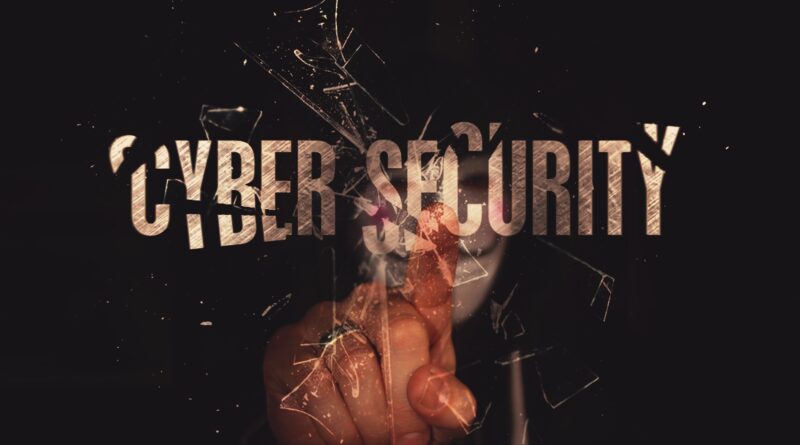Best Cyber Security Practices for Small to Med-Sized Business
Don’t fall into the trap that your small business, literally, has little to lose! Well, almost all the cases of cybersecurity reported thus far involve “big” entities. In fact, it seems like almost daily, a major institution is being persecuted as a result of a cyber-attack.
However, that does not guarantee that a small to mid-sized business cannot be a target for hackers. Ideally, most attacks leave companies beyond recovery, and if they recover, it’ll have to take a lot of time.
Therefore, such an attack on a small business can only be overwhelming. Often, such businesses lack the awareness of security risks that they face, and those who are aware of the threat landscape could lack the resources to effectively combat the risks.
There’s no denying that the cost for such a data breach is extremely high that could even mean that your business won’t survive such an attack. Therefore, your small business must make cybersecurity a priority.
Moreover, small businesses are an attractive target for hackers as they have the ideal information that hackers want. For instance, they seek the personal information of customers that they’ll exploit later, such as identity theft. Therefore, never think that your business is too small and won’t be targeted.
Perhaps, you may not know where to begin, but fortunately for you, this guide has been specifically tailored for you.
Top cybersecurity practices for any small to mid-sized firm
Double Down Your Firewall
It’s easier said than done, that the first line of defense against cybersecurity is using a firewall. So, is your small process safe?
Ensure that you activate and use the standard external firewall for your business. Furthermore, you need to double things up by installing internal firewalls for additional protection. In case you have employees working from home, then ensure that they install a firewall on their networks.
Enforce Safe and Strong Password Practices
It’s true that changing passwords is always a pain to employees; however, it’s a necessary practice to use in your business. Apparently, most of the attacks have taken place as a result of passwords lost, stolen, or are very weak.
In a 2020 Lifewire guide, the publication listed examples of strong passwords. In a similar report, PrivacySavvy.com listed the most hackable passwords in their report. Both those reports clearly tell why it’s critical to enforce robust password practices today.
Therefore, ensure that all employee devices that access the company network are password protected. Also, the passwords should be strong and not easily guessed. In the case of a common company password, it’s advisable that you keep it strong and changed as often as possible.
Back-Up All the Data
They say that nothing is perfect! So, what does that one mean?
It means that as much as you’re trying to prevent an attack, it’s very much possible that you can still be attacked. Therefore, to be on the safer side, you should take precautions.
Ensure that you back up all your data; financial files, word processing documents, databases, electronic spreadsheets, human resources files, and all the data in the cloud. That information should be stored separately to ensure that you can access it easily if it will ever be required. Moreover, you should check the backup often to ensure it is functioning correctly.
Employ Multi-Factor Authentication
Multi-factor and two-factor authentication is usually common for most businesses such as e-commerce stores that offer online transactions, banks as well as social media accounts. It’s a measure that helps to add some extra security layer to the user’s account, meaning anyone cannot access it even with a password unless with a successful authentication with another factor such as a biometric impression or a code.
Therefore, if your business requires that customers create accounts, then ensure that you enable multi-factor authentication to secure your customers’ personal data.
Use Security Tools and Software
In addition to cloud backups and passwords, you should ensure that you invest as well in other software and tools, such as anti-malware software. There are several routes that your employees might find themselves in trouble, like through phishing emails and several other social traps.
Therefore, with anti-malware, phishing emails can be filtered out quickly, leaving your employees safe.
Furthermore, your business needs to make use of Virtual Private Networks (VPNs). They’re a common security measure that will surely keep your data from hackers. Ideally, they help create an encrypted ‘tunnel’ via which your traffic data travels without being watched by third parties. Therefore, ensure you install one of the VPNs available, such as ExpressVPN, PureVPN, or NordVPN.
Train Your Employees
Doing every right would be useless if you don’t train your employees. Your employees should get practical knowledge about cybersecurity and why it’s significant to be secure; otherwise, they might not take it seriously.
For instance, you need to conduct some simulations as well as security breach drills to ensure that the staff has a clear idea of what they should do to avoid potential breaches. Moreover, they should have an idea of what should be done in case a breach takes place.
Consider BYOD
Another thing that a small business should consider is the BYOD as well as other remote working risks. The best way to reduce risks that are associated with remote working is by simply setting up clear guidance on how personal devices should be used.
For instance, Bring Your Own Device (BYOD) policy should be part of the business’s best security practices to ensure that all employees maintain the highest levels of security on every device used to access the company network.
Update Computers Frequently
One of the best and easy ways that you can keep your data from hackers is by frequently updating your business computers. All business laptops, desktops, and mobile devices should be updated consistently. That way, new security patches can be introduced to the devices to protect the system against the latest hacking techniques.
Wrapping Up
Nevertheless, regardless of the size of your business, security should be a no-brainer. Moreover, security is merely a moving target, and hackers advance each day. Therefore, as they advance, you should never be left behind. But instead, you should be on the front foot. Therefore, with practices such as updating your devices, keeping strong passwords, installing anti-malware, and regularly backing up data, your business will be secure from cybersecurity.


